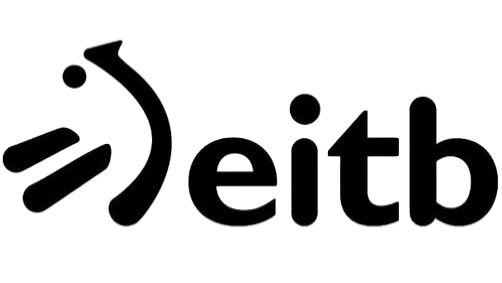Emotionally Intelligent Job Search: Strategies Beyond the CV

As the world of work continues to evolve, engaging in an emotionally intelligent job search is a critical differentiator. This is particularly true for seasoned professionals or leaders in transition, and your CV alone won’t cut it anymore.
Experience matters, but employers are looking beyond credentials. They’re asking: Can this person lead through complexity? Do they listen? Are they self-aware enough to grow with us, not just work for us?
Future-fit roles – whether in leadership, innovation, or stakeholder-facing functions – require more than technical proficiency. They demand self-awareness, empathy, adaptability, and emotional regulation under pressure. In other words, emotional intelligence.
If you’re someone who values meaningful work and wants to show up with authenticity, this article is for you. We’ll explore why and how your job search becomes far more impactful when you lead with emotional intelligence and not just achievements.
What It Means to Be Emotionally Intelligent in a Job Search
Emotional intelligence (often abbreviated as EQ) refers to the ability to understand, manage, and express your emotions, while also being sensitive to the emotions of others. It isn’t just about being “nice” or “calm”, but about being intentionally aware and constructively responsive.
Here are the five core components of EQ:
Self-awareness
The ability to recognise your emotions, strengths, blind spots, and values. It’s the internal compass that helps you navigate difficult decisions and keep your search aligned with what really matters to you.
Self-regulation
The ability to manage disruptive emotions like anxiety, frustration, or rejection without letting them dictate your actions. In job searches, this shows up as emotional steadiness, even when things don’t go to plan.
Empathy
Understanding what others might be feeling, even if they don’t say it out loud. In the job search context, this helps you attune to interviewers, recruiters, and hiring managers. It also improves the way you communicate your value.
Social skills
This includes listening well, building rapport, networking authentically, and navigating difficult conversations. It’s how you build trust before, during, and after the interview.
Motivation
A sense of purpose that sustains you through the uncertainty of a job search. Motivation grounded in values, not fear, makes you more resilient.
These aren’t just fluffy skills. They’re strategic, measurable, and deeply human capabilities that can be honed, and they give you a real edge in transitions.
How Emotional Intelligence Sets You Apart in Today’s Market
Recruiters and hiring managers are no longer just screening for experience. They’re paying close attention to how candidates think, communicate, and lead. And as AI takes over more technical tasks, it’s our human skills – like emotional intelligence and empathy – that become even more critical to standing out and staying relevant.
In Singapore, SkillsFuture’s frameworks for leadership development now emphasise emotional intelligence as a core future skill. Similarly, Australian HR leaders have cited EQ as one of the top predictors of success in hybrid and cross-functional teams. Why? Because EQ drives:
- Team cohesion – Leaders with emotional intelligence help others feel seen, heard, and safe.
- Stakeholder communication – Whether you’re presenting to C-suite or resolving conflict, EQ supports clarity and connection.
- Resilience – Setbacks don’t break you. Instead, they strengthen you. Emotionally intelligent candidates are better equipped to adapt.
At The Happy Mondays Co., we’ve seen it in our coaching work. Job seekers who embrace emotional intelligence are more likely to land in roles where they thrive. They’re not just chasing titles but are seeking alignment between their values and their work.

Emotionally Intelligent Interviewing: Regulating the Nerves, Owning Your Story
Interviews are high-stakes conversations. It’s natural to feel nervous, but your emotional intelligence skills can transform anxiety into presence.
Here’s how:
Self-regulation under pressure
Learn to ground yourself with simple breathing techniques before the interview. Recognise when your voice tightens or your heart races and give yourself permission to pause. Confidence is about having the ability to stay centred despite your nerves.
Listening actively
EQ is about listening to understand, not to reply. Reflect back what you hear: “That sounds like a major focus for your team right now...” This signals engagement and builds rapport.
Responding vs reacting
If you're asked something tough, don’t rush. Breathe. Ask for a moment. Respond with composure. That moment of pause says a lot about how you’ll handle stress in the actual role.
Communicating vulnerability strategically
Share stories that reflect your growth, such as moments where you made mistakes, learned, or changed direction. Vulnerability used wisely can humanise you and create genuine connection.
At The Happy Mondays Co, our Job Landing coaching helps you build exactly these capabilities. We’ll work with you not just on “what to say,” but on how to say it and how to own your story with clarity, presence, and conviction.
Want to dive deeper into storytelling? Our blog article on career narratives has tips you’ll love.
Empathy: Your Job Search Superpower
Empathy is often underrated in the job search, but it can shift everything. It allows you to:
Understand what your future employer truly needs
Instead of focusing only on what you want, empathy helps you tune into the organisation’s culture, values, and pain points. This changes the way you write your cover letter and even how you frame your answers.
Write better outreach and follow-ups
Avoid the generic “Just checking in…” and instead try: “Hope your week’s going well. I understand you're busy and just wanted to touch base on the next steps.” That subtle shift makes you more human and memorable.
Navigate rejections with grace
Rejections do sting. But instead of shutting down, emotionally intelligent candidates reflect and reach out: “Thanks for the update. I appreciate the opportunity to speak with your team. Wishing you all the best.”
Build genuine connections while networking
Whether it's a cold message on LinkedIn or a virtual coffee, empathy helps you approach conversations as real people, not just transactions.
Empathy builds trust, and trust opens doors.
Building an Emotionally Intelligent Job Search Strategy
EQ isn’t just for the big moments. It’s built in the quiet, daily practices that sustain you. Consider integrating these:
Start with an emotional check-in
Before diving into applications, ask: “What am I feeling right now?” Label it. Curious, defeated, hopeful? Naming your emotional state helps you manage it.
Journal your learnings
After each interview or networking call, write down what worked, what felt off, and what you’d try next time. It helps you track growth patterns and notice emotional triggers.
Build a sounding board
Find a coach, mentor, or friend who can reflect things back to you. Sometimes, someone else can see your patterns more clearly than you can.
Reframe rejection as redirection
Not landing the role doesn’t mean you’re not good enough. It may mean the fit wasn’t right. With emotional intelligence, you learn to protect your self-worth from external outcomes.
At the end of the day, you're not selling, but aligning. It’s a search for resonance. When your values, skills, and goals align with a company’s mission, that’s when the magic happens.
Conclusion: The Future Belongs to the Emotionally Intelligent
Employers are seeking professionals who are not only competent, but are emotionally intelligent leaders who can collaborate, adapt, and grow.
Your job search is a mirror. It reflects how you see yourself, what you value, and how you respond when things feel uncertain. Leading with an emotionally intelligent job search improves your chances of landing a job and also the quality of the opportunities you attract.
So pause. Ask yourself: Am I approaching this search from a place of clarity, empathy, and self-trust? If not, you don’t have to figure it all out alone.
At The Happy Mondays Co, we’re here to help you navigate this journey with emotional intelligence at the core. Our Job Landing coaching is tailored to leaders and seasoned professionals like you: people ready to grow, connect, and land with purpose.
Explore our Job Landing services and book a free discovery call today. Let’s build the version of your career that feels as good as it looks on paper.



















